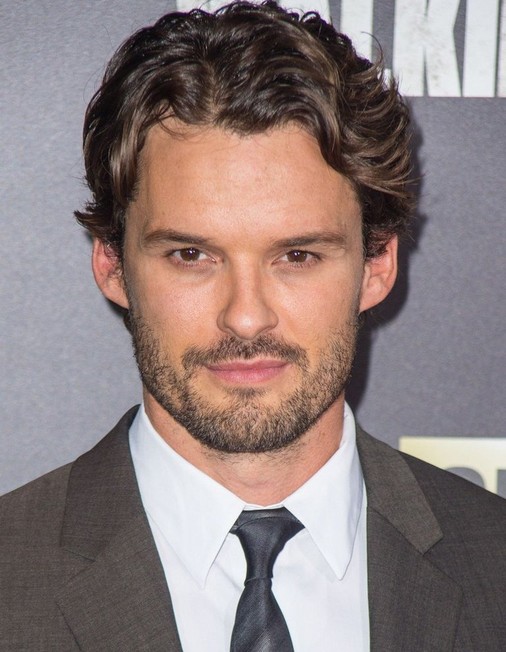Austin Nichols, a well-known actor from the hit series One Tree Hill, recently opened up about his experience working with Mary-Kate Olsen in the early 2000s. His candid reflections on their on-screen romance have sparked discussions about age dynamics and the challenges faced by young actors in Hollywood. Nichols' insights offer a glimpse into the complexities of navigating professional relationships during adolescence.
As an actor who has been part of several notable projects, Austin Nichols is no stranger to the spotlight. However, his recent comments regarding his past work with Mary-Kate Olsen bring attention to a different aspect of his career—one that involves personal growth and ethical considerations. In this article, we delve deeper into his thoughts and explore how these experiences shaped his perspective on the entertainment industry.
Austin Nichols Reflects on Age Gap
Austin Nichols has openly discussed the significant age difference between himself and Mary-Kate Olsen during their time working together on Holiday in the Sun. At the time, Mary-Kate was just 15 years old, while Nichols was around 18 or 19, possibly even 20. During an episode of the Drama Queens podcast, he revealed that the situation felt uncomfortable due to this disparity. He explained, “Mary-Kate was 15, and I was, I think, 18 or 19 or maybe even 20.” This revelation highlights the inherent challenges in portraying romantic scenes with such a gap in maturity levels.
Nichols further elaborated on the awkwardness he experienced during filming. The emotional and physical intimacy required for the role created tension, making it difficult for both actors to fully immerse themselves in the scene. Despite his youthful appearance at the time, Nichols recognized the discomfort stemming from the age discrepancy. This acknowledgment underscores the importance of addressing these issues within the context of professional settings.
In reflecting on his past, Nichols expressed regret over participating in the kiss scene, stating that it simply did not feel right. By sharing his feelings publicly, he aims to foster greater awareness about the potential pitfalls of casting decisions involving minors and older actors. Such transparency can help pave the way for more thoughtful approaches to similar situations in future productions.
Behind-the-Scenes Challenges
Filming intimate scenes can be challenging under any circumstances, but when there's a considerable age difference involved, the stakes become even higher. For Austin Nichols, the experience of kissing Mary-Kate Olsen left a lasting impression. On the Drama Queens podcast, he admitted, “It felt weird, and it felt wrong.” These sentiments reflect the broader concerns surrounding consent and comfort in acting scenarios where power dynamics may exist.
During the production of Holiday in the Sun, Nichols approached each scene with caution, mindful of maintaining professionalism despite the unease. While his character’s interactions with Mary-Kate's character were scripted, the reality of executing those moments brought forth unexpected emotions. As a result, Nichols learned valuable lessons about empathy and respect in collaborative environments.
His willingness to revisit this chapter of his career demonstrates a commitment to learning from past experiences. By acknowledging the difficulties faced during the shoot, Nichols encourages others in the industry to prioritize the well-being of all participants, regardless of age or status. This proactive stance serves as a reminder of the need for ongoing dialogue around best practices in film and television production.
Growth Through Reflection
Looking back nearly two decades later, Austin Nichols now understands why certain aspects of his collaboration with Mary-Kate Olsen seemed off-kilter. In hindsight, he recognizes that his participation in the controversial scene might have been avoidable. Speaking candidly, he stated, “I don’t remember exactly, but I was too old, and it felt weird, and it felt wrong.” Such honesty reveals a maturation process driven by introspection and accountability.
Through platforms like the Drama Queens podcast, Nichols continues to engage with audiences about his journey in entertainment. His openness invites listeners to consider the implications of age-related casting choices and how they impact young performers. Furthermore, it emphasizes the necessity of creating safe spaces for artists to express themselves without fear of judgment or exploitation.
Ultimately, Austin Nichols' reflections contribute to a larger conversation about ethics in filmmaking. By discussing his own struggles, he hopes to inspire change within the industry, ensuring that future generations of actors receive the support and protection they deserve. His story stands as a testament to the transformative power of self-awareness and advocacy in shaping a more inclusive and respectful creative landscape.

